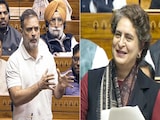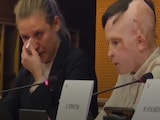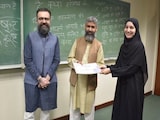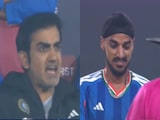South African President Cyril Ramaphosa on Wednesday acknowledged there had been rampant state corruption while he was deputy to ex-president Jacob Zuma, but said he did not resign as that would have hampered his efforts to resist the rot.
Ramaphosa was appearing before a judicial panel probing the alleged mass looting of state coffers during Zuma's 2009-2018 presidency.
He served as Zuma's deputy for four years from 2014 before succeeding him in February 2018.
"I had five options: resign; speak out; acquiesce and abet; remain and keep silent; or remain and resist," Ramaphosa said.
But had he quit his job, "this action would have significantly impaired my ability to contribute to bring about an end" to the graft, he argued.
Ramaphosa said he decided to stay in order to "resist some of the more egregious and obvious abuses of power."
It is Ramaphosa's second appearance before the panel.
Zuma played cat-and-mouse with the commission, answering questions only once in 2019 before walking out, saying he was being treated like a criminal.
This year, the country's top court ordered Zuma to return but he refused, and was last month handed a 15-month jail term for for contempt.
The inquiry is a result of a 2016 investigation by the country's ombudswoman which found evidence that Zuma allowed the Guptas, a wealthy Indian migrant business family who won lucrative contracts with state companies, undue influence over the government.
Ramaphosa came to power three and a half years ago on a vow to fight corruption.
He told the panel that had he chosen to be confrontational under Zuma, he would have risked being fired, and "my ability to effect change would have been greatly constrained, if not brought to an end."
During his first appearance before the commission in April, Ramaphosa admitted that graft had taken root within the ruling African National Congress (ANC), which has governed the nation since the end of the apartheid in 1994.
"State capture took place under our watch as the governing party," he said back then, referring to the plundering of publicly-owned assets.
The practice involved some ANC members and leaders, he said.
The graft inquiry will make recommendations to prosecutors when it concludes at the end of September.
Attendance at the hearing was limited due to Covid-19 restrictions, although opposition Democratic Alliance party leader John Steenhuisen and Ramaphosa's wife Tshepo Motsepe were among those in the gallery.
(Except for the headline, this story has not been edited by NDTV staff and is published from a syndicated feed.)















